Eurac Research is an interdisciplinary centre for future-oriented research located in Bolzano, Italy. Researchers develop strategies, technologies and solutions for the most relevant challenges of our time: the sustainable exploitation of natural resources, economic prosperity and population health.
The Institute for Renewable Energy within Eurac Research focuses on advancing innovative technologies and tools to support a just energy transition for cities and regions. Its research aims to assist companies and public authorities in creating energy-efficient, economically viable solutions across areas such as heating and cooling, photovoltaics, building envelopes, electric vehicles, and nature-based solutions.

The seventh Hypergryd General Assembly spanned two days, focusing on reviewing achievements from the project’s 36 months and planning the final six months. The assembly included a visit to the Eurac Research laboratories, with special attention to the Energy Exchange Lab—one of the project’s four Live-In Labs. Preparations are underway there to test the innovative reversible micro-CHP system integrating a steam engine and buffer. The laboratory’s flexible infrastructure supports testing a variety of systems, including low-temperature district heating networks powered by multiple energy sources, making it an ideal setup for experimentally exploring the operational range and performance of heating and cooling systems. By replicating district heating and cooling processes on a smaller scale—from generation to end-user consumption—the lab enables in-depth investigations into optimal network management and multi-source heat supply strategies.
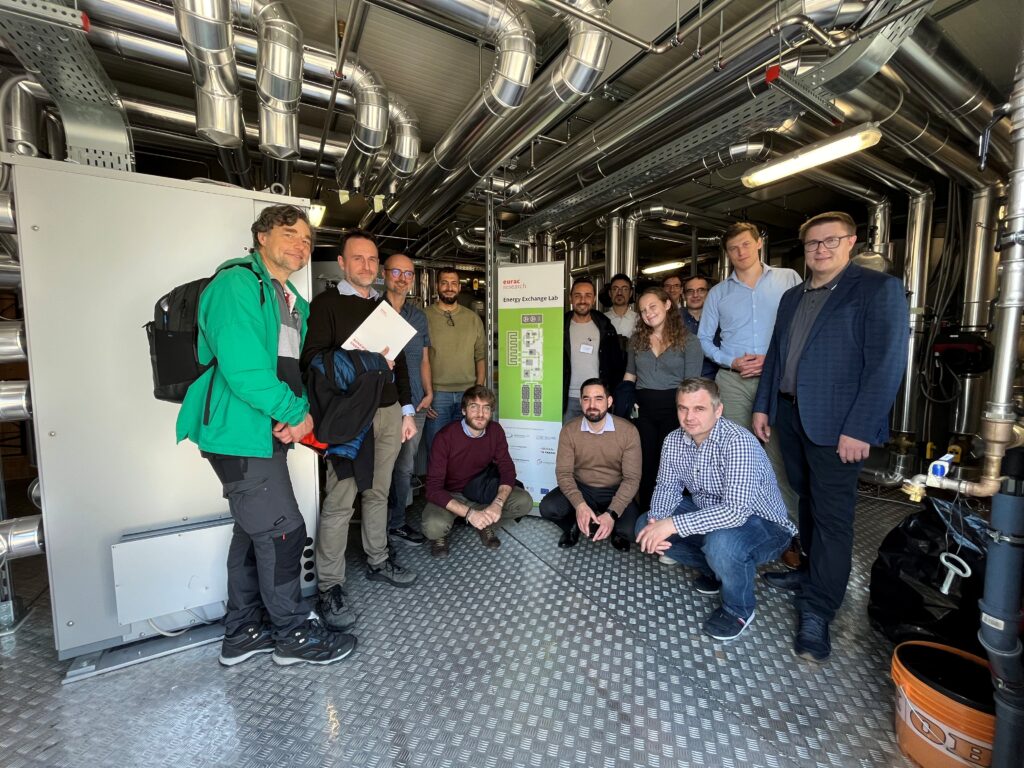
On the assembly’s third day, a knowledge exchange workshop titled “Innovative Decision-Support Tools for Addressing Emerging Challenges in the District Heating and Cooling Sector” took place. This workshop addressed upcoming technical, financial, and EU policy challenges for district heating operators. Three Hypergryd tools were showcased, demonstrating their practical applications in overcoming these challenges. Potential tool adopters, including energy utilities and planners, attended the workshop, gaining insights into the tools’ operations and offering feedback based on real-life applications.
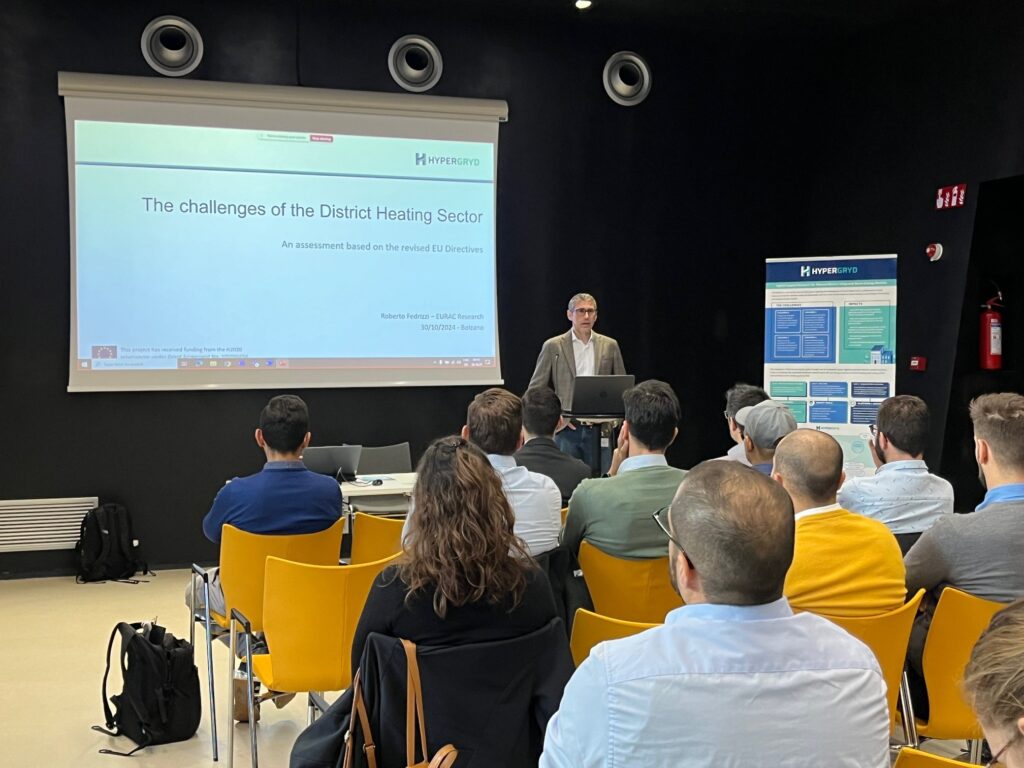
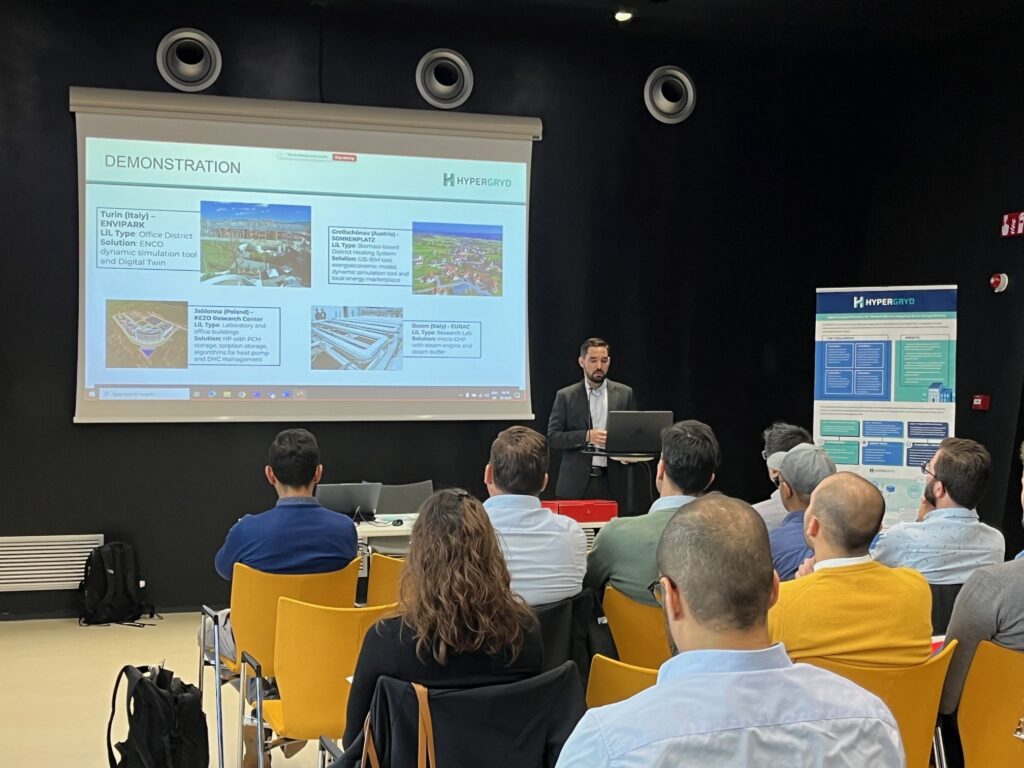
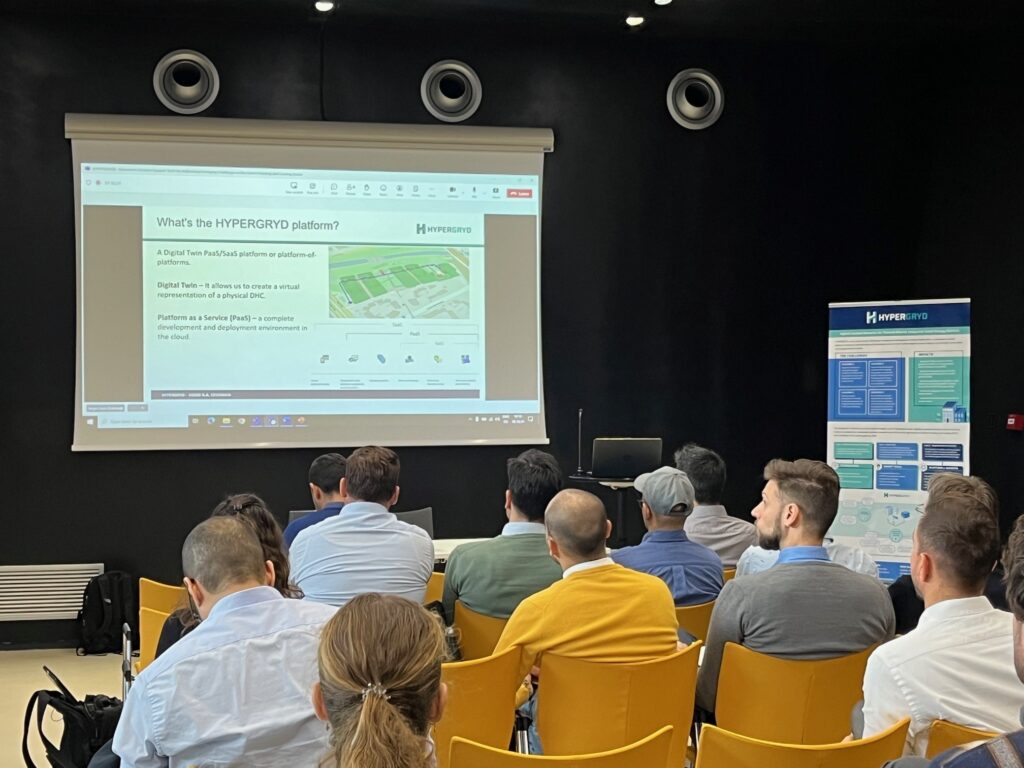
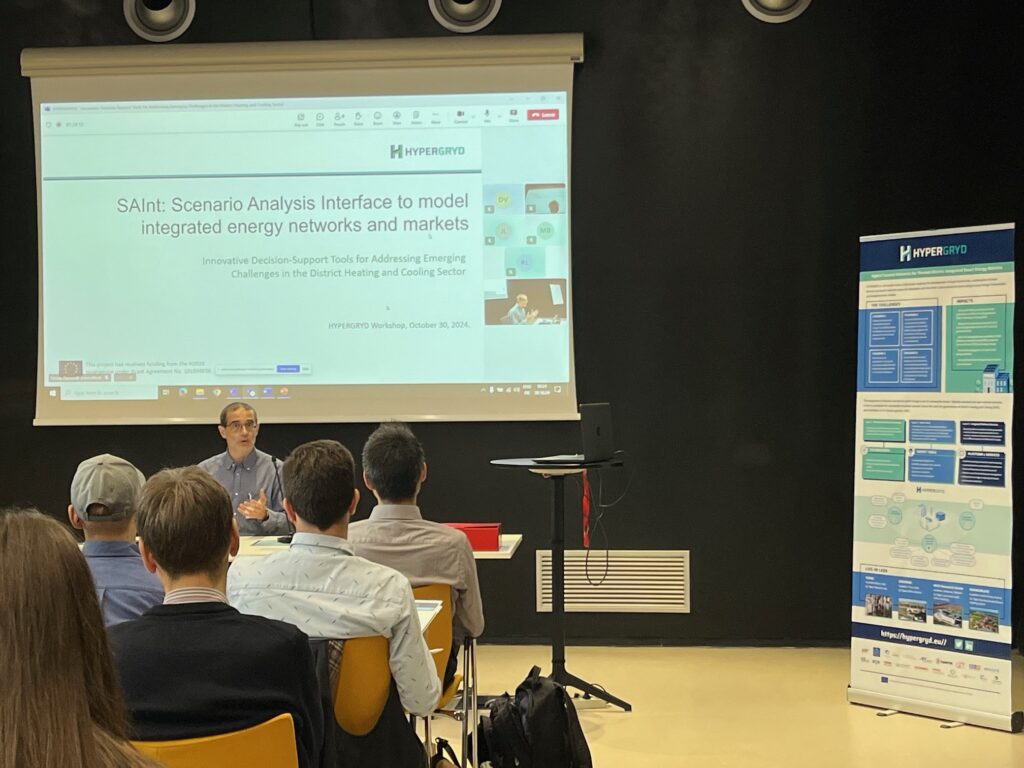
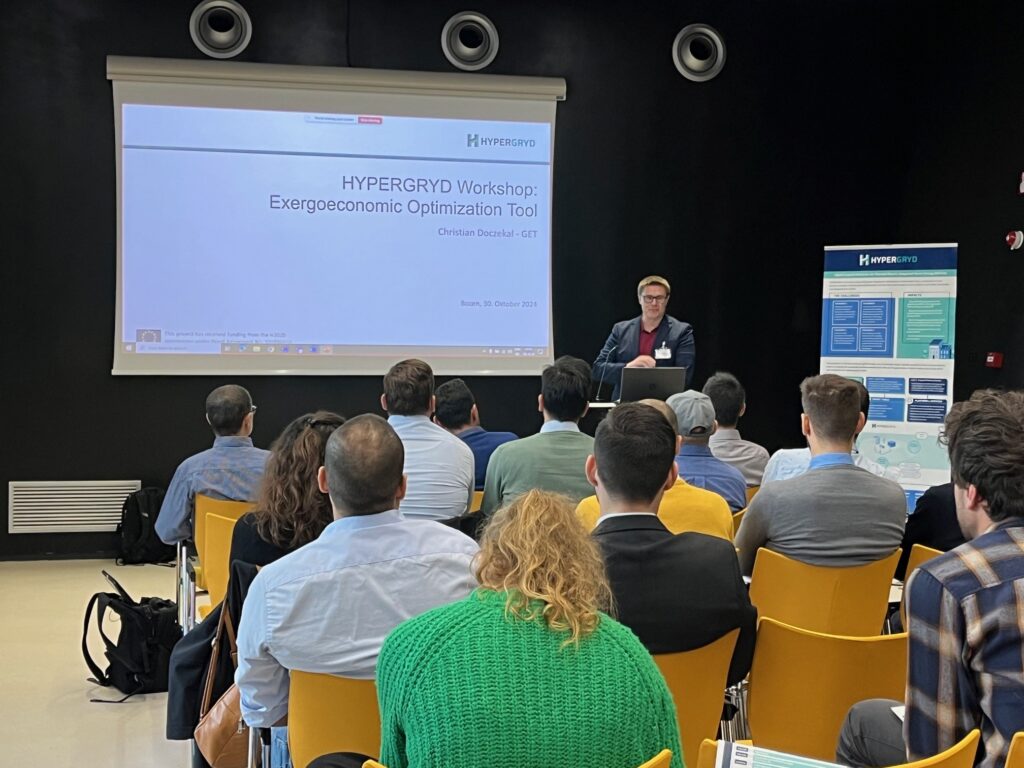
Written by Mauro Pipiciello, EURAC